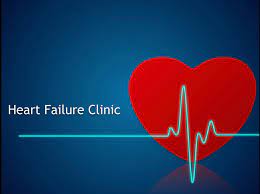Effects of multidisciplinary care in the heart failure clinic of Pranangklao Hospital
Keywords:
multidisciplinary approach, multidisciplinary care, heart failure clinicAbstract
Its primary objective was to assess the data and outcomes of multidisciplinary treatment within the heart failure clinic at Pranangklao Hospital. The research encompassed a total of 85 patients, with a notable predominance of males at 69.41%. A majority of these patients fell within the age between 30 and 60 years. Moreover, 56.47% of the subjects presented comorbidities, including hypertension (58.82%), diabetes mellitus (37.65%), atrial fibrillation (18.82%), and chronic kidney disease (stage 3-5, 15.29%), with a substantial proportion being smokers (50.59%) and alcohol consumers (51.76%). More than 80% of patients received ACEI (angiotensin-converting enzyme inhibitors), ARBs (angiotensin receptor blockers), and ARNI (Angiotensin Receptor Blocker/Neprilysin Inhibitor). A comparative analysis of pre- and post-treatment data revealed that a higher number of patients achieved treatment goals in alignment with heart failure treatment guidelines. Notable improvements were observed in the utilization of MRA (Mineralocorticoid receptor antagonist), beta-blockers, and SGLT-2 (sodium-glucose co-transporter-2) inhibitors, all of which demonstrated statistical significance (p < 0.001). NYHA (New York Heart Association) functional class evaluations indicated a substantial shift from Class III and IV to Class I and II for nearly all patients, with significant improvements in cardiac performance status noted three months after treatment initiation. Heart failure hospitalization within the subsequent three months was limited to just 3.5% of the participants, and no fatalities occurred within the one-year follow-up. In conclusion, the implementation of multidisciplinary care resulted in more patients receiving the recommended medication dosages, improved disease control, symptom management, and a reduction in disease-related complications. Mortality and hospitalization rates decreased, while clinic performance met the desired benchmarks, enhancing patients' quality of life. The study underscores the importance of healthcare professionals and multidisciplinary teams staying abreast of evolving treatment modalities.
References
รังสฤษฏ์ กาญจนะวณิชย์, อรินทยา พรหมินธิกุล. คู่มือการดูแลผู้ป่วยหัวใจล้มเหลวเรื้อรังแบบบูรณาการ โรงพยาบาลมหาราชนครเชียงใหม่. มหาวิทยาลัยเชียงใหม่. 2558.
Savarese G, Becher PM, Lund LH, et al. Global burden of heart failure: a comprehensive and updated review of epidemiology. Cardiovasc Res. 2023 Jan 18;118(17):3272-3287.
Greene SJ , Butler J, Albert NM, et al. Medical Therapy for Heart Failure With Reduced Ejection Fraction: The CHAMP-HF Registry. J Am Coll Cardiol 2018 Jul 24;72(4):351-366.
Weinstein JM, Greenberg D, Sharf A, et al. The impact of a community-based heart failure multidisciplinary team clinic on healthcare utilization and costs. ESC Heart Fail. 2022 Feb;9(1):676-684.
Sokos G, Kido K, Panjrath G, et al. Multidisciplinary Care in Heart Failure Services. J Card Fail. 2023 Mar 14:S1071-9164(23)00067-2.
Essa H, Walker L, Mohee K, et al. Multispecialty multidisciplinary input into comorbidities along with treatment optimisation in heart failure reduces hospitalisation and clinic attendance. Open Heart. 2022 Jul;9(2):e001979.
Yates L, Valente M, Wadsworth C. Evaluation of Pharmacist Medication Review Service in an Outpatient Heart Failure Clinic. J Pharm Pract. 2020 Dec;33(6):820-826.
Waiyaporn Promwong, Apinya Siripitayakunkit, Kanitha Hanprasitkam. Evaluation of Health Care Services Using a Multidisciplinary Care Model for Persons with Heart Failure at the Heart Failure Clinic, Ramathibodi Hospital. Rama Nurs J. 2019;25: 166-179.
Usasiri Srisaku, Warawut Umpornwirojkit, Supapron Pattanasan, Apichot So-ngern, Charlermsri Pummangura, Panupong Rucksawong, et al. Development of Multidisciplinary Care Model for Outpatients with Chronic Heart Failure. Health Systems Research Institute. 2019; 05-01T06: 54-59.
McDonagh TA, Metra M, Adamo M. et al,2021 ESC Guidelines for the diagnosis and treatment of acute and chronic heart failure.Eur Heart J.2021 Sep 21;42(36):3599-3726.
Heidenreich PA, Bozkurt B, Aguilar D. et al,2022 AHA/ACC/HFSA Guideline for the Management of Heart Failure: A Report of the American College of Cardiology/American Heart Association Joint Committee on Clinical Practice Guidelines.Circulation. 2022 May 3;145(18):e895-e1032.
Bayés-Genís A , Aimo A , Metra M, et al. Head-to-head comparison between recommendations by the ESC and ACC/AHA/HFSA heart failure guidelines.
Eur J Heart Fail 2022 Jun;24(6):916-926.
สมาคมแพทย์โรคหัวใจแห่งประเทศไทยใน พระบรมราชูปถัมภ์. แนวทางเวชปฏิบัติเพื่อการวินิจฉัยและการดแลรักษาผู้ป่วยภาวะหัวใจล้มเหลว พ.ศ. 2562. กรุงเทพฯ: สมาคมแพทย์โรคหัวใจ แห่งประเทศไทยในพระบรมราชูปถัมภ์; 2562
Taklalsingh N, Wengrofsky P, Levitt H. The Heart Failure Clinic: Improving 30-Day All-Cause Hospital Readmissions. J Healthc Qual 2020 Jul/Aug;42(4):215-223.
Hauptman P , Rich M, Heidenreich P, et al. The heart failure clinic: a consensus statement of the Heart Failure Society of America. J Card Fail 2008 Dec;14(10):801-15.
Lainscak M , Keber I. Heart failure clinic in a community hospital improves outcome in heart failure patients. Swiss Med Wkly 2006 Apr 29;136(17-18):274-80.
Diederich T, Burdorf A , Pozehl B, et al. The role of a multidisciplinary heart failure clinic in optimization of guideline-directed medical therapy: HF-optimize. Heart Lung 2023 Jan-Feb;57:95-101.
Lin MH, Yuan WL, Huang TC, et al. Clinical effectiveness of telemedicine for chronic heart failure: a systematic review and meta-analysis. J Investig Med 2017 Jun;65(5):899-911.
Imberti JF, Tosetti A, Mei DA, Maisano A, et al. Remote monitoring and telemedicine in heart failure: implementation and benefits. Curr Cardiol Rep 2021 May 7;23(6):55.
Andrès E, Zulfiqar AA, Talha S, et al.Telemedicine in elderly patients with heart failure. Geriatr Psychol Neuropsychiatr Vieil 2018 Dec 1;16(4):341-348.
Lazárová M, Hlavinka A, Šulc P, et al. Use of telemedicine in patients with heart failure. Vnitr Lek 2022 Fall;68(3):154-158.
Ding H, Jayasena R, Chen SH, et al. The Effects of Telemonitoring on Patient Compliance With Self-Management Recommendations and Outcomes of the Innovative Telemonitoring Enhanced Care Program for Chronic Heart Failure: Randomized Controlled Trial. J Med Internet Res. 2020 Jul 8;22(7):e17559.
Fatrin S, Auliani S, Pratama S, et al. Telemedicine to Support Heart Failure Patients during Social Distancing: A Systematic Review. Glob Heart. 2022 Dec 19;17(1):86.
Zhu Y, Gu X, Xu C. Effectiveness of telemedicine systems for adults with heart failure: a meta-analysis of randomized controlled trials. Heart Fail Rev. 2020 Mar;25(2):231-243.
Puwanant S, Sinphurmsukskul S, Krailak L, et al. The impact of the coronavirus disease and Tele-Heart Failure Clinic on cardiovascular mortality and heart failure hospitalization in ambulatory patients with heart failure. PLoS One. 2021 Mar 23;16(3):e0249043.

Downloads
Published
How to Cite
Issue
Section
License
Copyright (c) 2023 praepayom angsusing

This work is licensed under a Creative Commons Attribution-NonCommercial-NoDerivatives 4.0 International License.
Journal of TCI is licensed under a Creative Commons Attribution-NonCommercial-NoDerivatives 4.0 International (CC BY-NC-ND 4.0) licence, unless otherwise stated. Please read our Policies page for more information.





